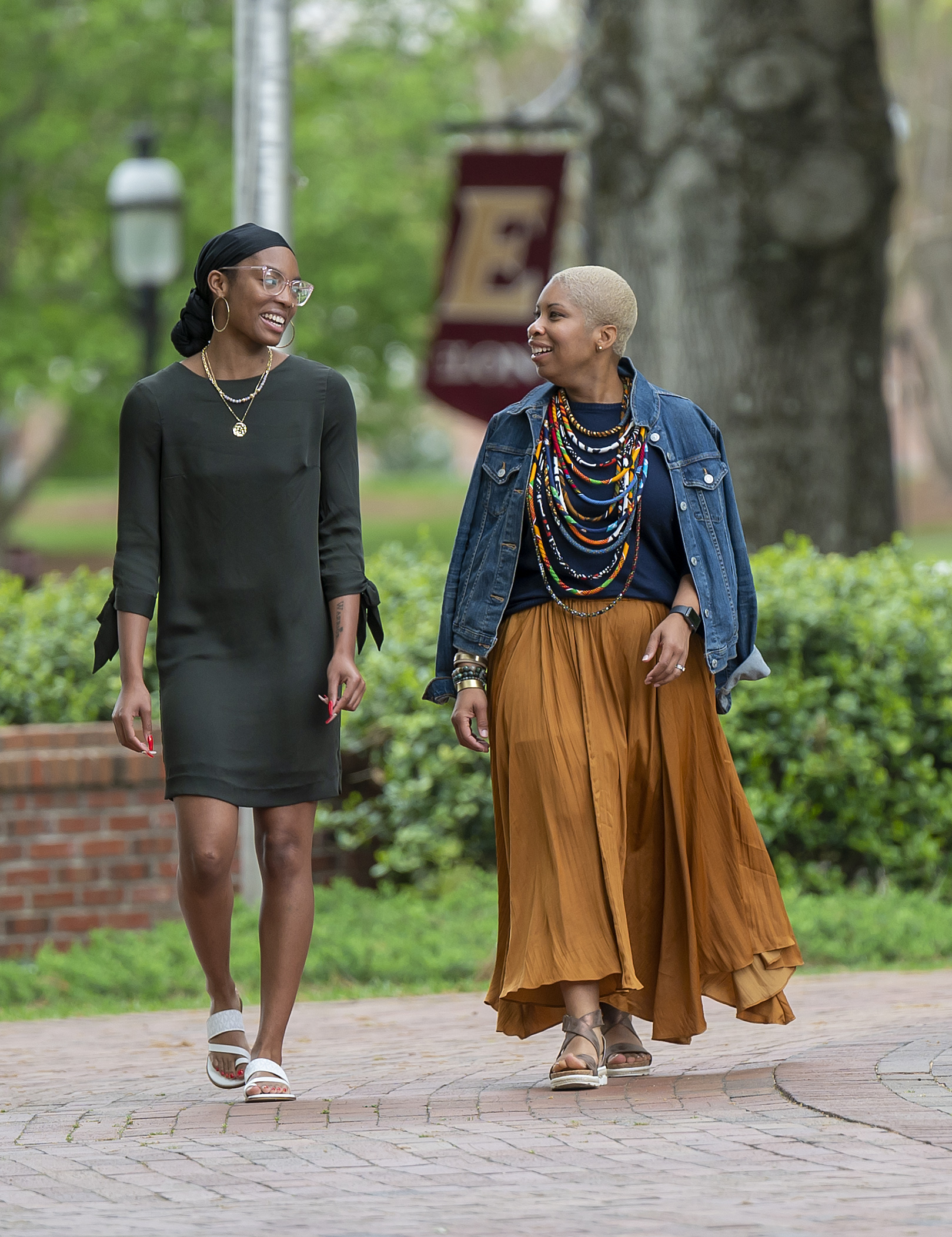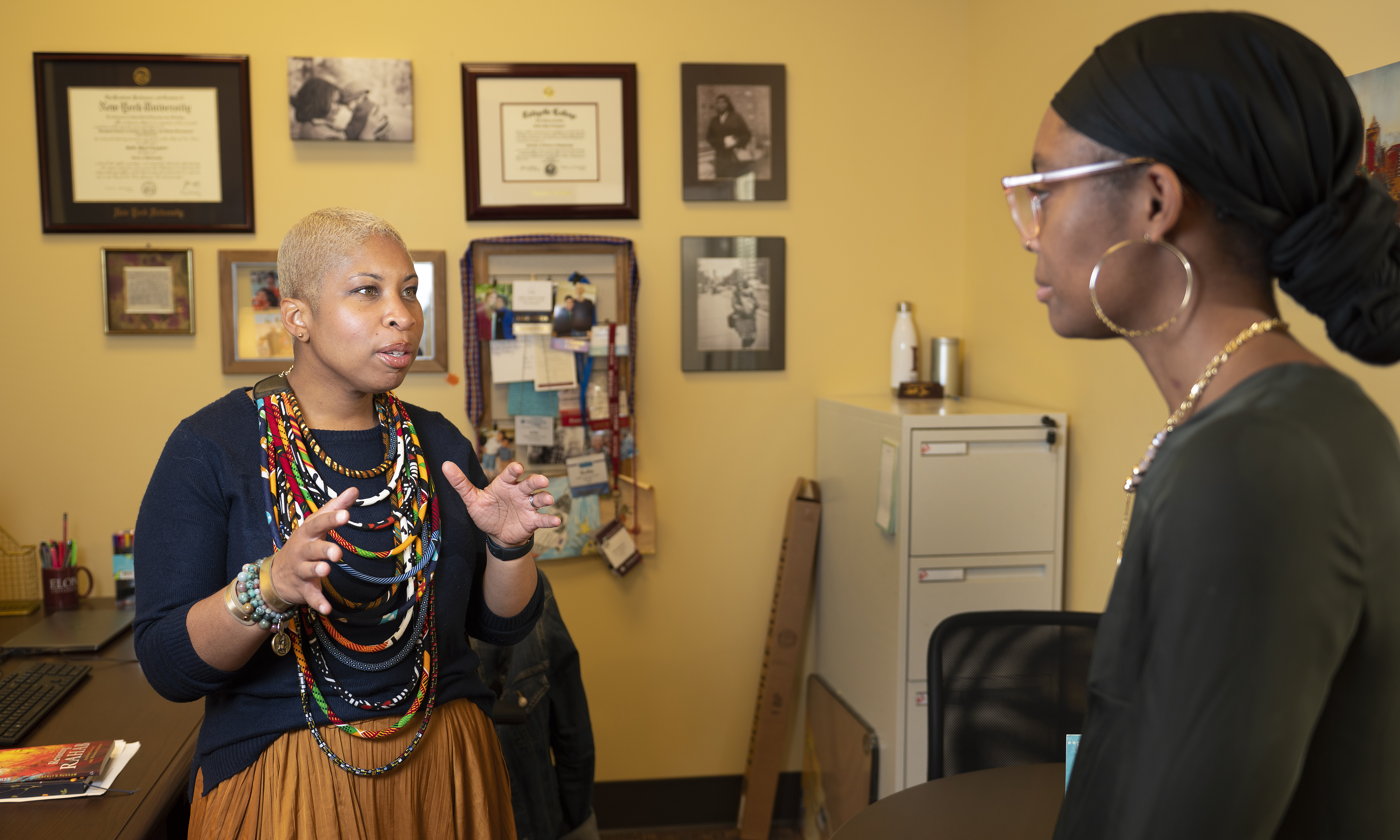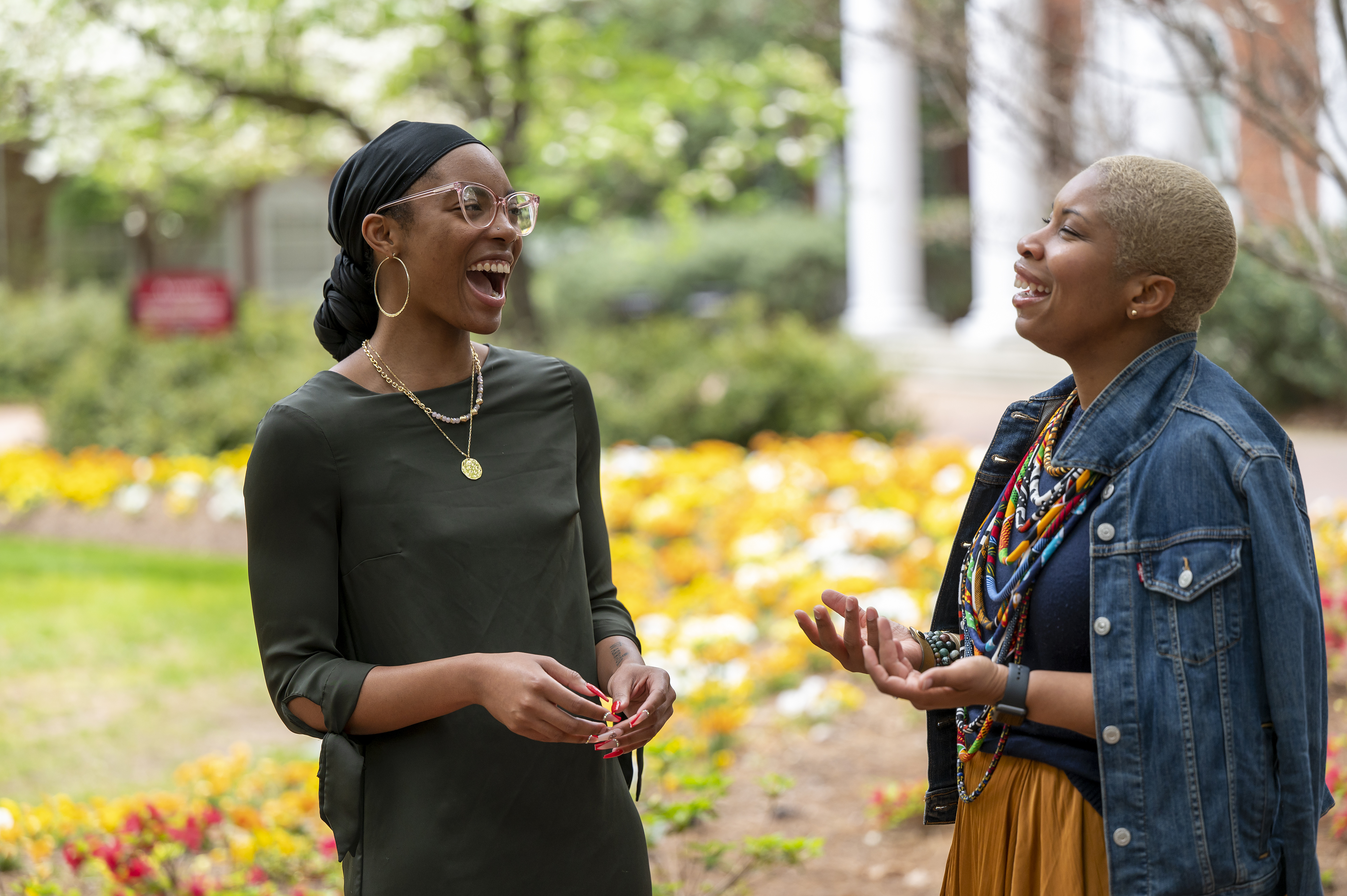Psychology major Eukela Little '22 along with her mentor, Buffie Longmire-Avital, center their Lumen Scholar research on reframing the "strong Black woman" persona to include self-care through a mobile health intervention.
Black women often are labeled as “goddesses,” “magical” and possessing other supernatural qualities. Usually, out of admiration and in jest. But eventually, that mythological status gets taken seriously and they are relied on so much that it hinders their well-being.
This leads to Black women feeling the need to meet these unrealistic standards at the expense of their health, showing higher rates of breast cancer at young ages, diabetes, stroke, depression, anxiety and self-silencing than any other demographic.

The goal of Eukela Little’s ’22 Lumen Scholar research is to ensure Black women prioritize self-care and rethink what it means to be a strong Black woman. Her project centers around the strong Black woman schema and raises the question – Can women still be the “strong Black woman” and care for themselves?
“We’re finding out that they can,” Little said. “But there have to be some things that take place for that to happen.”
“It starts with an awareness that you were overwhelmed and that you do see yourself as a strong Black woman,” said Buffie Longmire-Avital, associate professor of psychology and Little’s mentor for her Lumen Prize research. “But what does that mean and how can you still be a strong Black woman that is selfish, centers self-care and recognizes that you are just human?”
The Lumen Prize awards scholars a $20,000 scholarship to support a chosen research project and allows them to work closely with a faculty mentor on that project for two years. Each year, 15 rising juniors are named Lumen Scholars and conduct research that often produces conference presentations and publications.
Through her research, “Strong, Black and Selfish: Reframing the Strong Black Woman Persona to include Self-Care through a Mobile Health Intervention,” Little created an eight-week intervention aimed at encouraging and reframing self-care, self-compassion and self-contemplative practices – the three pillars of the schema for collegiate Black emerging adult women.
She interviewed numerous experts in the field, both at Elon and elsewhere, as well as former students of Longmire-Avital. She filmed those interactions and broke them into digestible videos with prompts and activities for the nearly 30 participants.
Each week of the intervention, Little presented the participants with a different concept – understanding self-care, mindful mediation and other topics – to focus on and turn intention into action.
“There was this moment where I was trying to push Eukela into this typical research box, and she was like, ‘That’s not what I wanted to do. I want to create workshops and immediately help people. I’m not about just writing the research up.’ She wanted to disseminate this information. It wasn’t about generating research for her consumption or a select few,” Longmire-Avital said.

“It woke me up in terms of how I’ve been following a certain pattern and gave me the courage to let that go. Eukela is a wonderful example of when you step back and let a student’s creativity and innovation lead you,” she added. “I’m thankful for her vision and her steadfast conviction to want to be the change, not just document what needs to happen.”
Little created the Instagram page, Project S.E.L.F. (Self-empowering and Loving Formation), a platform that merges her interests in Black women studies and self-care. It is a space to share information, while also highlighting her journey in prioritizing well-being.
By documenting her journey, she holds herself accountable by practicing what she preaches.
“I use the Instagram page in a lot of the talks that I give,” Longmire-Avital said. “It serves as a source of recruitment, but it’s also a way of reflecting on her experiences and breaking down barriers every step of the way.”
Longmire-Avital has been a mentor to Little during all four years she’s been a student at Elon.
As a first-year student, she presented at the Black Solidarity Conference and following that presentation, she sought out professors on campus to help her continue researching important topics in the Black community. Several of the students and faculty in attendance suggested to both Little and Longmire-Avital that they should connect.
They did and from there, Longmire-Avital offered her a position as her research student. They began working together officially during Little’s sophomore year, during which they prepared for the Lumen Prize application.
“I’ve had two other research mentors before Longmire-Avital, and she was my first Black woman mentor. That within itself created a sense of safety for me to show up as myself during trying times,” she said.
Little is currently searching for graduate programs to continue her community-centric research and eventually obtain a doctorate. Her post-doctorate plans are to continue working with the Black community on topics of mental and physical health.
“My biggest gripe when it comes to academia is that we’ll do research on the community and then write this big elaborate paper and present it to other people in academia. Well, the people that you’ve spent six months studying don’t know about all of these conferences,” Little said.
In the conversations Little had with the participants and the experts on the topic, a recurring theme of community was continuously exhibited, even with different topics and at different times. Establishing a sense of self is paramount. But equally important, is creating a base of supportive reinforcement around yourself.
Knowing that other Black women have similar feelings when it comes to fostering strong environments with other Black women was as rewarding as it was surprising, Little said.
“Being able to be in a space, confide in someone and feel safe shows the importance of Black sisterhood that a lot of women explained,” Little said. “That has been really eye-opening.”
The topic of reframing the strong Black woman schema and prioritizing self-care is one that didn’t take a lot of convincing for the participants, as they have a genuine desire for the information that Little’s research helped provide.
“We always talk about ‘Black girl magic.’ We’re all trying to be magical Black girls. But it was very interesting to see that conception of the magical Black girl was at a goddess level. That was concerning for me because we are human. We have to always be mindful of where the trends are going and how those trends may initially appear to be one thing … but if not careful, they can also be sources of great pressure,” Longmire-Avital said. “Eukela’s research illuminates that.”
Learn more about the Lumen Prize and its recipients here.



